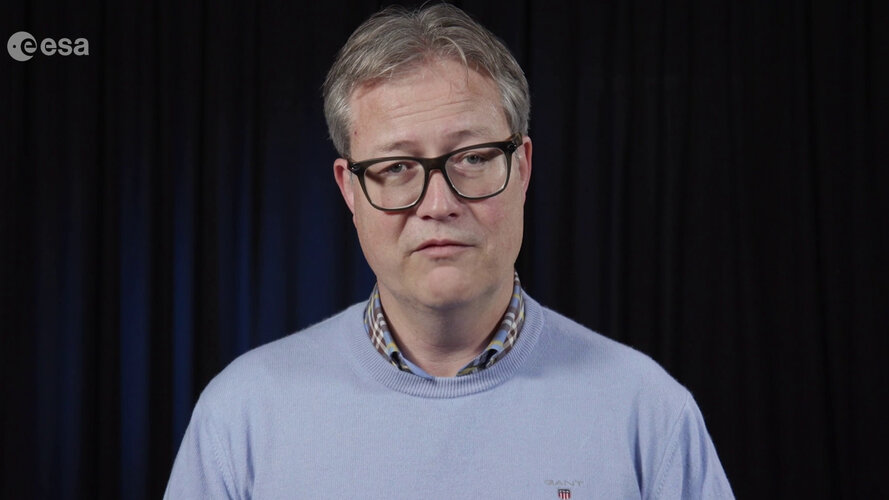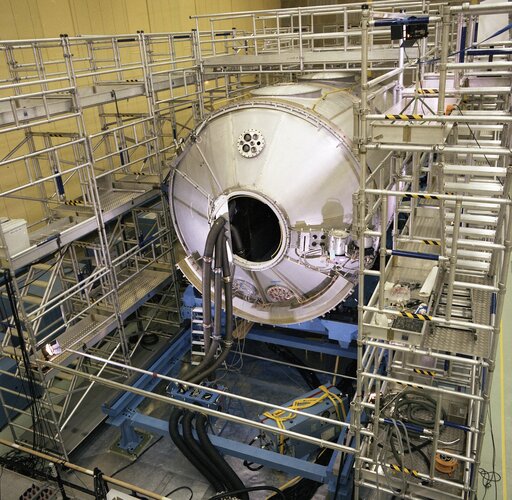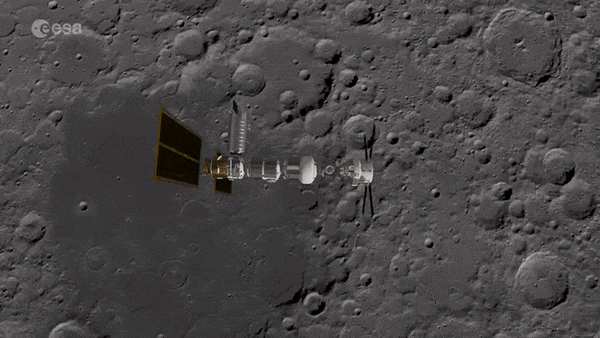
Copernical Team
Tackling the Growing Challenge of Space Debris
 As humanity ventures deeper into the realm of space exploration and commercialization, the threat posed by space debris has escalated, demanding urgent attention and innovative solutions. The year 2023 witnessed a series of pivotal developments and initiatives, highlighting the critical challenge of orbital debris, which presents a significant risk to operational satellites, the International Sp
As humanity ventures deeper into the realm of space exploration and commercialization, the threat posed by space debris has escalated, demanding urgent attention and innovative solutions. The year 2023 witnessed a series of pivotal developments and initiatives, highlighting the critical challenge of orbital debris, which presents a significant risk to operational satellites, the International Sp WVU Team Tackles Radio Interference in Astronomy with NSF Funding
 In a significant stride towards enhancing the clarity of astronomical observations, researchers at West Virginia University (WVU) are pioneering methods to combat the pervasive issue of human-made radio frequency interference (RFI). This interference, emanating from ubiquitous sources such as cell phones, televisions, and radar systems, poses a substantial obstacle in detecting radio signals cru
In a significant stride towards enhancing the clarity of astronomical observations, researchers at West Virginia University (WVU) are pioneering methods to combat the pervasive issue of human-made radio frequency interference (RFI). This interference, emanating from ubiquitous sources such as cell phones, televisions, and radar systems, poses a substantial obstacle in detecting radio signals cru Embry-Riddle's Innovative Mission Control Lab prepares students for booming space sector
 In an era where the space industry is rapidly expanding, Embry-Riddle Aeronautical University has taken a significant step to prepare its students for the challenges of tomorrow. The university has announced the opening of a new satellite mission control center on its Daytona Beach Campus, a move poised to place its graduates at the forefront of the burgeoning space sector.
According to th
In an era where the space industry is rapidly expanding, Embry-Riddle Aeronautical University has taken a significant step to prepare its students for the challenges of tomorrow. The university has announced the opening of a new satellite mission control center on its Daytona Beach Campus, a move poised to place its graduates at the forefront of the burgeoning space sector.
According to th Millennium Space Systems completes CDR for Missile Track Custody Space Vehicle
 Millennium Space Systems, a subsidiary of aerospace giant Boeing [NYSE: BA], has reached a significant milestone in the development of the Missile Track Custody (MTC) space vehicle with the successful completion of the Critical Design Review (CDR), a crucial phase in the project, less than a year after receiving the green light to proceed.
The MTC project is a cornerstone of the United Sta
Millennium Space Systems, a subsidiary of aerospace giant Boeing [NYSE: BA], has reached a significant milestone in the development of the Missile Track Custody (MTC) space vehicle with the successful completion of the Critical Design Review (CDR), a crucial phase in the project, less than a year after receiving the green light to proceed.
The MTC project is a cornerstone of the United Sta Archimedes Platform Successfully Tested by Above: Space and Electric Sky
 In a significant advancement for space technology, Above: Space Development, in collaboration with Electric Sky, has successfully tested the Archimedes platform, a novel, rapidly deployable, free-flying on-orbit system. This platform marks a new era in space infrastructure, encompassing a wide range of functions including solar panels, beamed power, and electronically steerable antenna arrays fo
In a significant advancement for space technology, Above: Space Development, in collaboration with Electric Sky, has successfully tested the Archimedes platform, a novel, rapidly deployable, free-flying on-orbit system. This platform marks a new era in space infrastructure, encompassing a wide range of functions including solar panels, beamed power, and electronically steerable antenna arrays fo Lockheed Martin aims for rapid on-orbit operations with Electronically Steerable Antenna
 Lockheed Martin (NYSE: LMT), a renowned leader in the aerospace and defense sector, recently announced a significant step forward in space technology with the upcoming launch of a wideband Electronically Steerable Antenna (ESA) payload demonstrator. This initiative is a testament to Lockheed Martin's dedication to enhancing space capabilities for quick operational readiness once in orbit.
Lockheed Martin (NYSE: LMT), a renowned leader in the aerospace and defense sector, recently announced a significant step forward in space technology with the upcoming launch of a wideband Electronically Steerable Antenna (ESA) payload demonstrator. This initiative is a testament to Lockheed Martin's dedication to enhancing space capabilities for quick operational readiness once in orbit. A prominent protostar in Perseus
 Image:
Image:
This new Picture of the Month from the NASA/ESA/CSA James Webb Space Telescope reveals intricate details of the Herbig Haro object 797 (HH 797). Herbig-Haro objects are luminous regions surrounding newborn stars (known as protostars), and are formed when stellar winds or jets of gas spewing from these newborn stars form shockwaves colliding with nearby gas and dust at high speeds. HH 797, which dominates the lower half of this image, is located close to the young open star cluster IC 348, which is located near the eastern edge of the Perseus dark cloud complex. The bright infrared objects
Space Team Europe for Euclid: Henk Hoekstra
 Video:
00:03:08
Video:
00:03:08
Henk Hoekstra, professor of observational cosmology at Leiden University, the Netherlands, shares his professional trajectory linked to weak gravitational lensing, a technique used by ESA’s Euclid mission.
Henk explains how Euclid will reveal the dark side of the Universe. He uses enlightening examples involving a swimming pool and other terrestrial objects. Listen to Henk Hoekstra to understand how Euclid can make the invisible visible.
Space Team Europe is an ESA space community engagement initiative to gather European space actors under the same umbrella sharing values of leadership, autonomy, and responsibility.
How we made Spacelab

On 28 November 1983 European human spaceflight took a giant leap forward. Not only did German Ulf Merbold become the first ESA astronaut in space, but along with him travelled the European-made Spacelab. Carried in the Space Shuttle’s cargo bay, Spacelab converted the Shuttle into a highly productive orbital laboratory.
Spacelab to Gateway: 40 years of modules for people in space

ESA’s first human spaceflight mission lifted off 40 years ago today. Accompanied by the first ESA astronaut, Ulf Merbold, the Spacelab module took flight inside the Space Shuttle’s cargo bay, turning NASA’s ‘space truck’ into a mini-space station for scientific research. Europe continues to be highly active in the crewed module business to this day.
